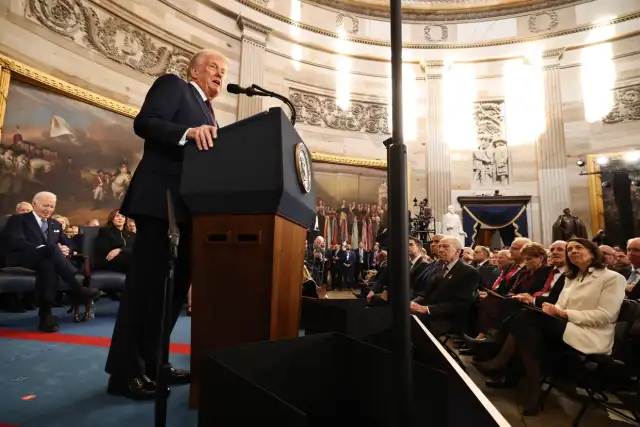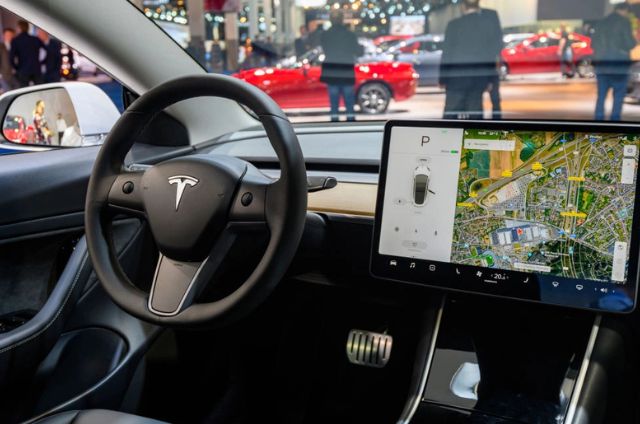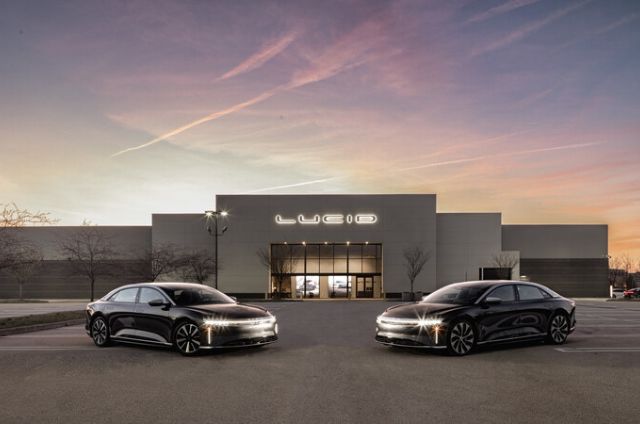In his inauguration speech, President Donald Trump pledged to roll back federal regulations on vehicle emissions standards, which he labeled the “electric vehicle mandate.” Trump announced plans to sign an executive order reversing Biden-era goals that aimed for 50% of new vehicles sold by 2030 to be electrified. While Biden’s target wasn’t legally binding, it encouraged automakers to prioritize electric vehicle production.
Trump argued that the rollback would save the U.S. auto industry and give consumers more freedom to buy cars of their choice. However, critics warn the policy shift could slow EV adoption and hinder efforts to address climate change.
EPA Rules Under Scrutiny
The rollback will likely target Environmental Protection Agency (EPA) rules for model years 2027 to 2032, which set strict emissions standards for automakers. While the EPA standards don’t mandate EV purchases, they encourage automakers to include a mix of EVs, hybrids, and cleaner gas-powered cars in their fleets to meet emission targets.
During Biden’s administration, these regulations aimed to reduce greenhouse gas emissions, improve air quality, and tackle climate change. However, Trump plans to loosen these rules, claiming they push the industry too far ahead of consumer demand.
Tariffs and Trade Policy Overhaul
Trump also reiterated his campaign promise to reform U.S. trade policies. He proposed increasing tariffs on goods from China, Mexico, and Canada to protect American workers and boost domestic manufacturing. In a bold move, Trump announced plans to establish an “External Revenue Service” to collect tariffs and funnel the revenue into the U.S. economy.
While new tariffs won’t be imposed immediately, Trump directed federal agencies to evaluate trade policies and relationships with key trading partners. These changes could have major implications for the auto industry, which relies heavily on global supply chains.
Mixed Reactions from Auto Leaders
Automakers are closely monitoring Trump’s policies. General Motors CEO Mary Barra congratulated Trump on his inauguration, expressing optimism about strengthening the U.S. auto industry. Stellantis also voiced support for policies favoring domestic manufacturing.
However, John Bozzella, CEO of the Alliance for Automotive Innovation, cautioned against policies that could disrupt the industry or outpace consumer demand for EVs.
Unions Seek Common Ground
Despite unions like the United Auto Workers (UAW) opposing Trump during the campaign, many union members supported him. Trump praised union workers in his speech, noting their role in his victory. UAW President Shawn Fain expressed a willingness to collaborate with Trump on trade policies to protect blue-collar jobs, even though the union disagrees with much of his domestic agenda.
As the new administration moves forward, the future of EV policies and the U.S. auto industry remains uncertain.



